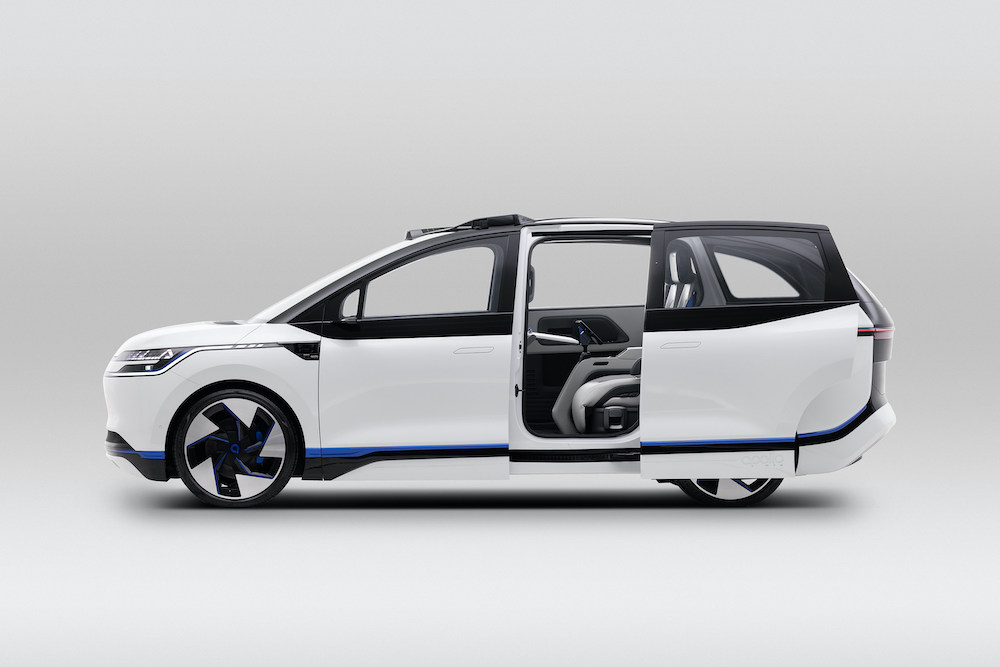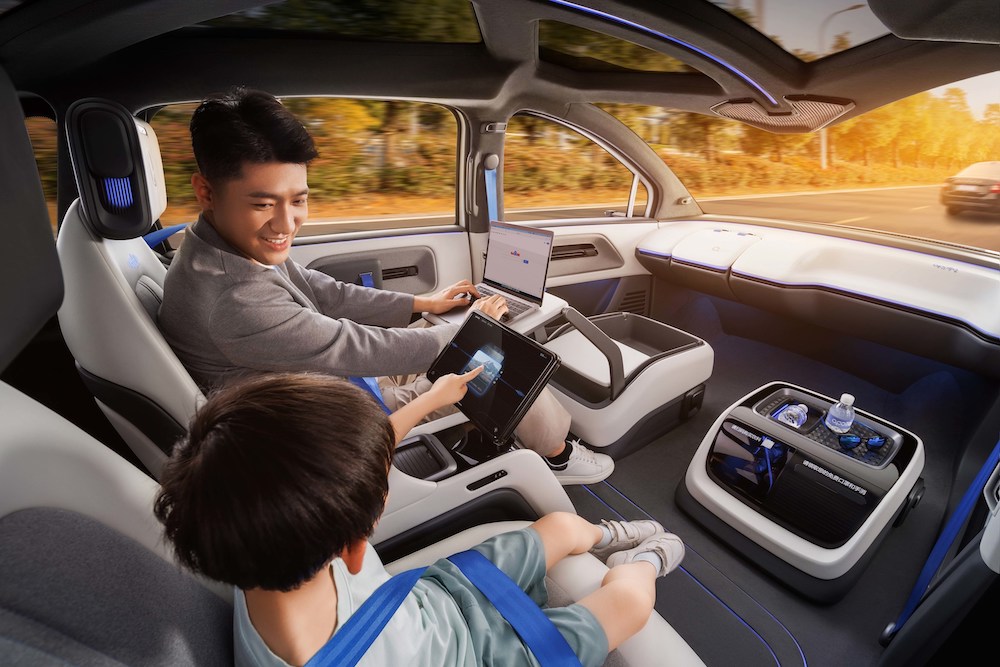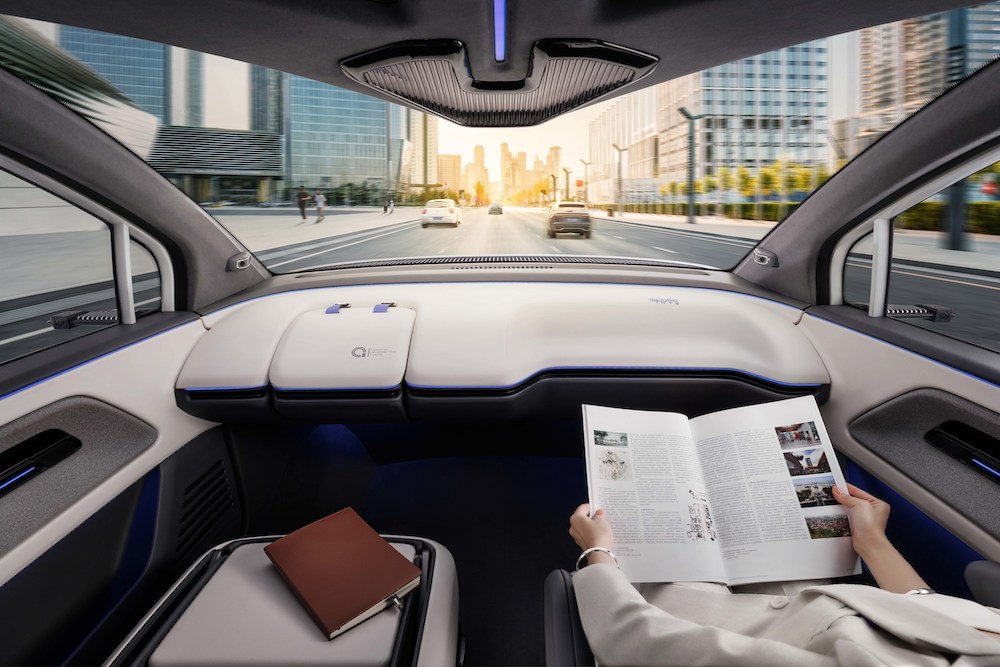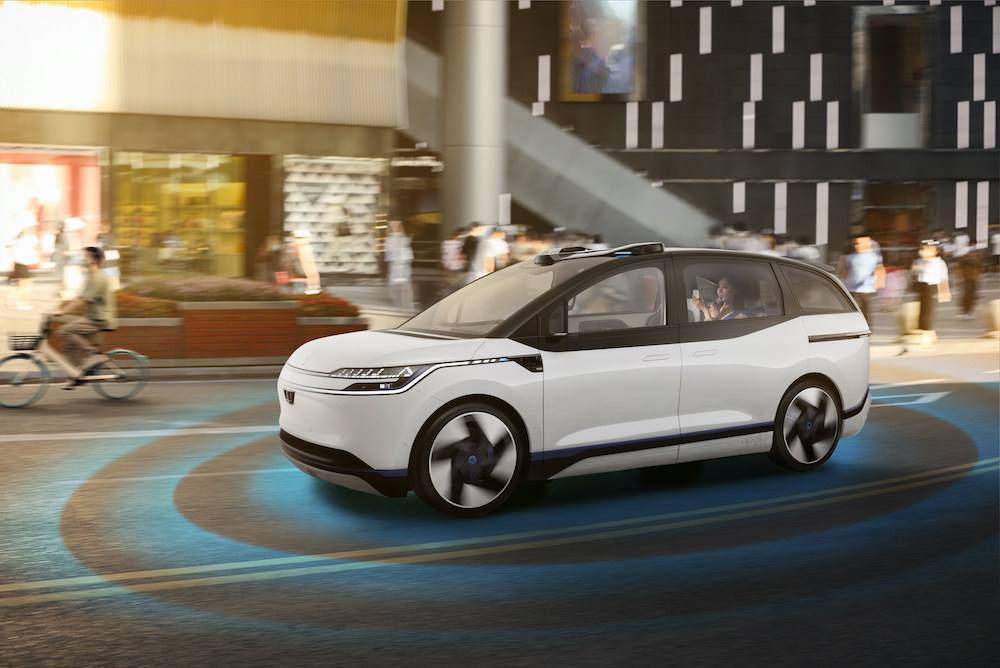Chinese tech giant Baidu says its next-generation autonomous taxi features the capabilities of a “skilled driver with 20 years of experience.”
The Beijing-based company, which operates a ridesharing service similar to Uber’s, unveiled the all-electric Apollo RT6 at a special event on Wednesday, July 20.
Baidu plans to deploy the Apollo RT6 in large numbers in 2023 as part of Apollo Go, the company’s autonomous ride-hailing service that operates in 10 Chinese cities.
Images (below) of the new car reveal a futuristic-looking interior that ditches the steering wheel along with other components associated with traditional vehicles. However, Baidu said that during a trial phase, the Apollo RT6 will operate with a steering wheel and a safety driver until regulators give the green light to do away with both.
“The steering wheel-free design unleashes more space to craft unique interiors, allowing for the installation of extra seating, vending machines, desktops, or gaming consoles,” Baidu said in a statement on its flashy new robotaxi.
The Apollo RT6 car is actually Baidu’s 6th-generation self-driving vehicle, but the previous designs are essentially conventional automobiles kitted out with self-driving tech.
Baidu’s new self-driving car currently offers autonomous driving capabilities graded at Level 4, which is highly advanced and one grade short of the maximum Level 5, which offers “full automation. This is made possible by the vehicle’s dual computing units powered by advanced software, and 38 sensors that include 8 LiDARs and 12 cameras to ensure the vehicle misses nothing as it drives along.
“With a per unit cost of $37,000, the arrival of Apollo RT6 is set to accelerate AV deployment at scale, bringing the world closer to a future of driverless shared mobility,” Baidu said.
As autonomous driving technology continues to advance, companies in the sector are increasingly looking toward designs that rid their self-driving cars of manual controls.
In the U.S., autonomous-car leaders Waymo and GM Vauxhall-backed Cruise have both unveiled designs for future self-driving vehicles that seek to offer truly autonomous trips in comfortable surroundings, though it could still be a number of years before regulators allow them onto regular roads.
Editors' Recommendations
- Waymo taps the brakes on its autonomous-trucking project
- Waymo’s robotaxis are coming to Uber’s ridesharing app
- Waymo doubles service area for its robotaxi rides
- Robo-bus fleet aims to carry 10,000 passengers per week
- Cruise’s robotaxis have driven 1 million miles fully driverless






